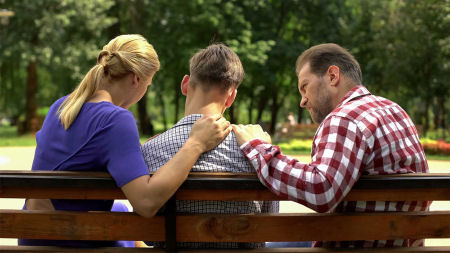Violence against children is most often caused by adults, but children also experience various forms of violence, intimidation and extortion from their older peers, their classmates ...
 It is in these acts that a child is often the victim, which is difficult to identify. In case of intimidation, extortion and violence, a child may experience physical assault, injury, psychological pressure, threat, theft or damage to personal property, harassment, irritation, humiliation, insults, etc.
It is in these acts that a child is often the victim, which is difficult to identify. In case of intimidation, extortion and violence, a child may experience physical assault, injury, psychological pressure, threat, theft or damage to personal property, harassment, irritation, humiliation, insults, etc.
Bullying and violence are serious problems that should not be ignored. Both can and must be stopped!
We would like to emphasize that this type of violence does not include possible non-threatening quarrels or fights, which are so common in children, as they are part of a natural phenomenon during children's development. However, timely detection of exceeding these limits is important.
A child who became a victim of violence has experienced an unpleasant ordeal that can also have consequences for him/her and his/her behavior, both at home or outside the home and school. With some instructions, we can offer you the support to talk to him/her.
We want your child to never be a victim of violence. However if this happens to him/her, it is good to know some of the typical consequences of such actions, which are a warning that the child needs your help.
You may think that your child may be intimidated when he/she is afraid of going to or from school, reluctant to go to school, asking to be accompanied to school, changing his way to school, his school performance deteriorating, coming home with damaged personal belongings and clothes, running out of money, coming hungry (because they took money from him/her for lunch), coming home with unexplained scratches and injuries, asking for more money or secretly taking money (to pay intimidators), constantly " loses "pocket money", refuses to talk about what's wrong, gives impossible excuses for the just mentioned "new forms of behavior and collusion", is distracted at home, absent, "for no reason" cries, is not eating, may start bedwetting or has nightmares.
| When you find that your child is being bullied, be with him and support him. |
Promise him/her that you will protect him/her and do everything you can to stop this happening. Parents can help the child. Try to talk to him/her.
 Seek help from professional services and at school. Keep in mind that a child is usually very scared, as he/she fears the consequences of “reporting” the bully. Let the child know that the most important thing is to always protect himself/herself. He/she should also defend his/her property from the extortionist, including older peers, but only so that he/she will not be harmed. He/she should seek help from bullies from friends, at school and, of course, from you. The child needs to know that you will trust and help him/her.
Seek help from professional services and at school. Keep in mind that a child is usually very scared, as he/she fears the consequences of “reporting” the bully. Let the child know that the most important thing is to always protect himself/herself. He/she should also defend his/her property from the extortionist, including older peers, but only so that he/she will not be harmed. He/she should seek help from bullies from friends, at school and, of course, from you. The child needs to know that you will trust and help him/her.
Also, talk to children about the police and the criminal service. Tell them the cops can help them too. This will make it easier for them to seek our help. We will prevent and limit violence if we work together, if we constantly and all of us try to stop the perpetrators. When they realize there is no way out, we can expect them to retreat. However, trusting victims of violence and offering them help must become the rule.

